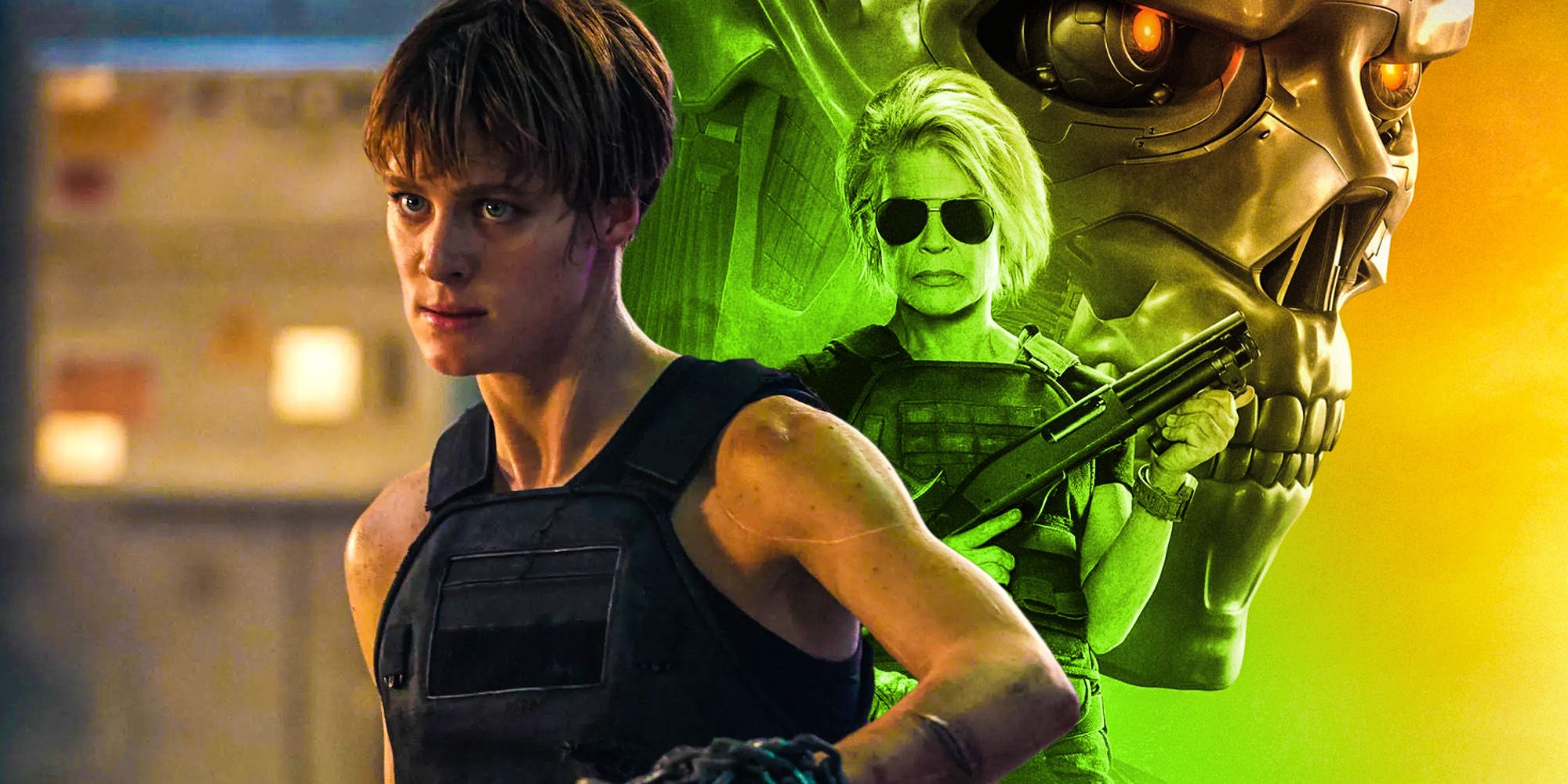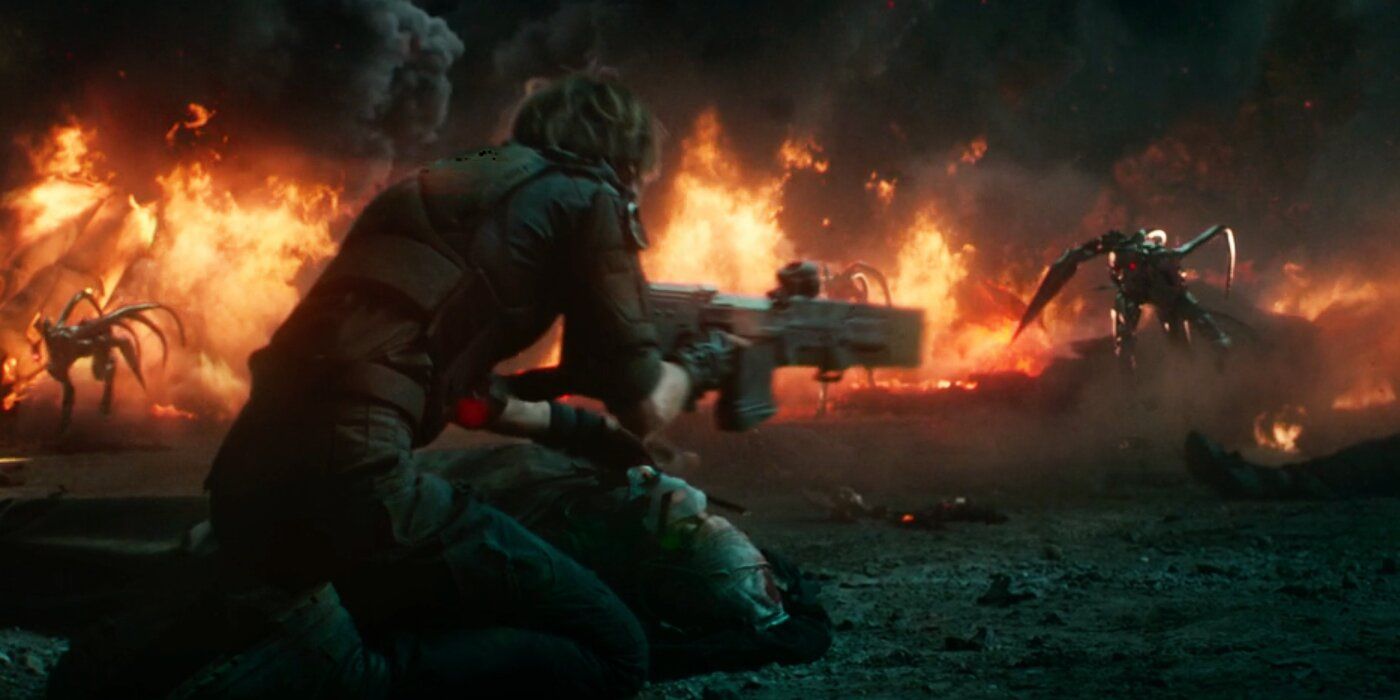Terminator: Dark Fate’s canceled sequel would have focused on Mackenzie Davis’ Grace, a mistake the franchise would have had a hard time coming back from. The original Terminator is a stark, brutal horror-thriller that bears little resemblance to some of the later additions in its franchise. The movie stars Arnold Schwarzenegger as the eponymous android assassin (who was almost played by Mel Gibson, hard as it is to believe), sent to the past to kill Sarah Connor before she gives birth to John Connor, the future human resistance leader.
The story is relatively straightforward in the first two sequels, which follow the adventures of John as he avoids being assassinated by new model Terminators. However, the franchise soon began experimenting with alternate timelines to critically maligned effect. Both 2015’s Terminator: Genisys and 2019’s Terminator: Dark Fate alter and add to the events of earlier outings, earning the ire of already-confused fans and alienating many casual viewers.
This tendency toward time-travel experimentation in the franchise reached its zenith with the opening of 2019’s third attempted reboot, Terminator: Dark Fate, which immediately killed off John Connor. Intended to be devastating, the twist instead left viewers frustrated and more than one reviewer claimed the hopeless tone made engaging with the installment’s new human characters feel pointless. The most notable human character introduced in the outing, Mackenzie Davis’cybernetically-enhanced warrior Grace, was also dead before the credits rolled. However, a canceled sequel was set to focus on bringing another version of Grace back to life - and it is a good thing the series avoided this potential misstep.
The sequel would have reportedly centered on a new version of Grace, creating a different timeline Terminator: Genisys-style. According to an interview with Davis at Den of Geek, the next movie would have skipped ahead into an alternative future where her character survived, as opposed to reincarnating the existing version of Grace. However, this would have been a misguided route for a variety of reasons. For one thing, Terminator Salvation’s jump into the post-apocalyptic future was widely disliked by fans, and there is no reason to believe another sequel set in another version of the franchise’s future would fare any better.
For another, Terminator: Genisys’ timeline-altering story was similarly hated, as it made the complicated chronology even harder to follow. Of course, Dark Fate director Tim Miller’s pedigree directing blockbusters like Deadpool posed another problem. Terminator: Dark Fate struggled to stick to the bleak tone established in its opening scene, and bringing back one of the only notable characters the movie killed off would have made the threat of death meaningless in the series. The 2019 movie’s uneven tone would only be worsened by a follow-up that removes any stakes or tension by making its heroine effectively immortal. To quote Davis herself when asked about the possibility of a direct Terminator: Dark Fate sequel, “God no, that’s insane!”


